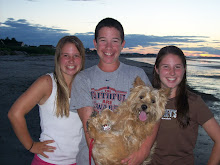What are the social obligations of a hero?
A hero is a leader distinguished by courage, talent, and a commitment to the advancement of society. A hero will thrive at any challenging mission. In the beginning of the poem Beowulf, Scefing “prospered under heaven, won praise and honor” (8). He was considered a hero, by terrifying his enemies and conquering other clans. Therefore, a hero must have strength and power in order to protect his kingdom. They must be selfless and willing to risk their lives in order to save the community. Hrothgar, another hero, also “won his honor in war, glory in battle” (64-65). A hero must show he is worthy of respect and admiration by fighting. While a hero has the responsibility to guard his community, he also must share the rewards with his men. It is important for him to remain humble, even after he succeeds. In addition, not only must a hero have a strong physical appearance, but he also must have powerful speech. They must give orders, have a plan, and be able to answer anyone who questions them with confidence.
Is Beowulf aware of his deification process?
It is clear to the other members of society, Beowulf is a hero: “Beowulf by name, renowned among the Geats for his great bravery” (194-195). Everyone admires and respects him. If Beowulf was unaware of his great strength and vitality, he certainly would never be undertaking such a challenging mission or ask the bravest of the Geats to assist him: “Beowulf searched out the bravest of the Geats, asked them to go with him” (205-206). Once on his mission, Beowulf shows his confidence by not hesitating to answer the watch guard’s question. As the guard asks why he is here, Beowulf quickly responds with an answer: “I can counsel Hrothgar, that wise, and good man, how he shall overcome the fiend” (274-275). Beowulf would not appear as daring and courageous if he thought he had the potential to fail. As the watch guard pointed out it is one thing to say something, but another thing to do something: “The discriminating warrior-one whose mind is keen- must perceive the difference between words and deeds” (284-285). Beowulf would not have committed himself to helping Hrothgar if he did not know he could. Beowulf’s no fear attitude demonstrates that he is aware of his abilities and believes that no one has the potential to defeat him.
A hero is a leader distinguished by courage, talent, and a commitment to the advancement of society. A hero will thrive at any challenging mission. In the beginning of the poem Beowulf, Scefing “prospered under heaven, won praise and honor” (8). He was considered a hero, by terrifying his enemies and conquering other clans. Therefore, a hero must have strength and power in order to protect his kingdom. They must be selfless and willing to risk their lives in order to save the community. Hrothgar, another hero, also “won his honor in war, glory in battle” (64-65). A hero must show he is worthy of respect and admiration by fighting. While a hero has the responsibility to guard his community, he also must share the rewards with his men. It is important for him to remain humble, even after he succeeds. In addition, not only must a hero have a strong physical appearance, but he also must have powerful speech. They must give orders, have a plan, and be able to answer anyone who questions them with confidence.
Is Beowulf aware of his deification process?
It is clear to the other members of society, Beowulf is a hero: “Beowulf by name, renowned among the Geats for his great bravery” (194-195). Everyone admires and respects him. If Beowulf was unaware of his great strength and vitality, he certainly would never be undertaking such a challenging mission or ask the bravest of the Geats to assist him: “Beowulf searched out the bravest of the Geats, asked them to go with him” (205-206). Once on his mission, Beowulf shows his confidence by not hesitating to answer the watch guard’s question. As the guard asks why he is here, Beowulf quickly responds with an answer: “I can counsel Hrothgar, that wise, and good man, how he shall overcome the fiend” (274-275). Beowulf would not appear as daring and courageous if he thought he had the potential to fail. As the watch guard pointed out it is one thing to say something, but another thing to do something: “The discriminating warrior-one whose mind is keen- must perceive the difference between words and deeds” (284-285). Beowulf would not have committed himself to helping Hrothgar if he did not know he could. Beowulf’s no fear attitude demonstrates that he is aware of his abilities and believes that no one has the potential to defeat him.

No comments:
Post a Comment